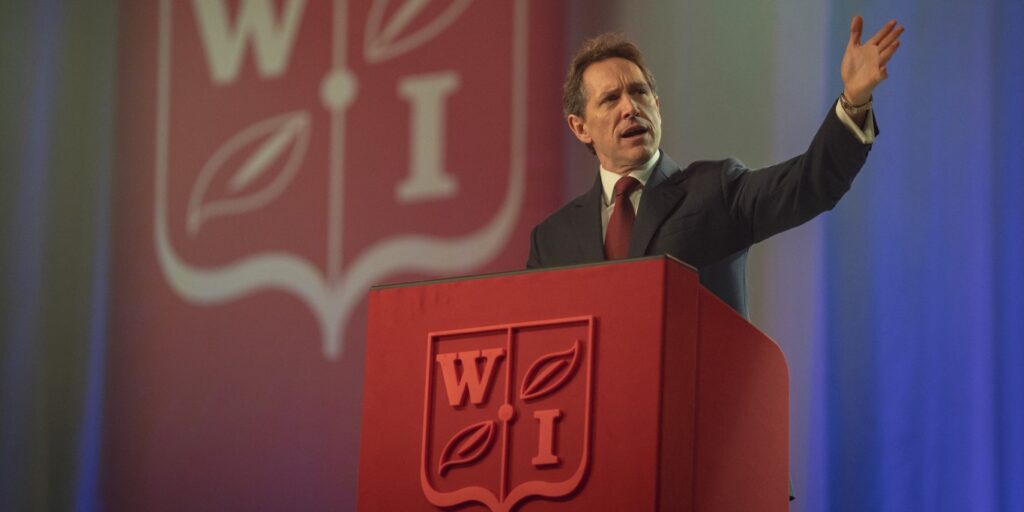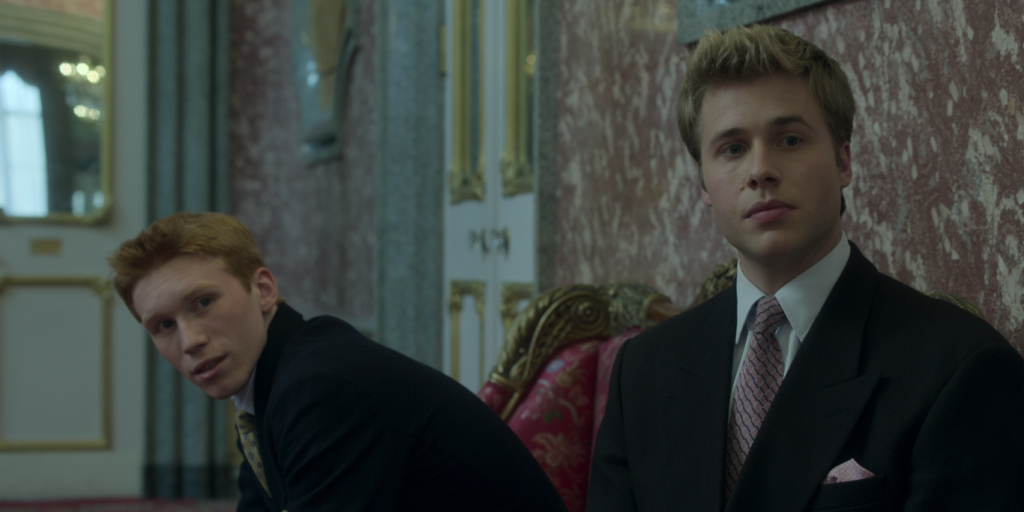Read also:
How to Watch FX Live Without CableHow To Watch AMC Without CableHow to Watch ABC Without CableHow to Watch Paramount Network Without CablePeter Morgan’s royal drama shuts the book on the British monarchy in suitably uneven fashion.
Peter Morgan’s sumptuous-if-soapy take on the British Royal Family comes to a close with the final installment of season six, undoubtedly the most uneven season of The Crown’s entire run. The first half of the season is spent as a tense but plodding account of the final weeks of Princess Diana’s (Elizabeth Debicki) life and her relationship with Dodi Fayed (Khalid Abdalla). The buildup to the fatal car crash is both effectively tense and cringe-worthy, mostly for Dodi’s attempts to woo Diana at his father Mohamad’s (Salim Daw) behest.
The Fayeds’ pursuit of Diana underscores how the public commoditized Diana Spencer, her image, and her life. The feeling of the last few episodes of season six’s first half is as tawdry as any Daily Mail spread. Those hours spent going from room to room in Paris are so fraught that the brief cutaways of the Windsors at Balmoral aren’t enough to ease the tension of knowing what’s about to happen. The shock of her death, so sudden and violent, is undermined by scenes of a ghostly Diana comforting the very people who were the architects of all her miseries. The thought of Diana tearfully telling Prince Charles (Dominic West) how much she loved him is a laughable moment because, of course, that is what Charles would walk away with.
While the grief of the Princes Royal toes the line between entertainment and exploitation, it works to transition the first and second halves of season six neatly, taking us right from the immediate loss of Diana to William’s time at St Andrews and his pursuit of Kate Middleton. The second half of the season is split between Wills: The College Years and the Slow Decay of The Institution. The former paints both Wills and Harry as angry, tender, and chafing under the burden of their fame. The latter portrays a family trying to reconcile their irrelevancy in a rapidly changing world, a lesson Elizabeth (Imelda Staunton) learns by witnessing the meteoric rise and fall of Tony Blair.

Bertie Carvel’s portrayal of Blair as a well-meaning but ultimately slippery customer, a highlight of the series. In a rather brilliant turn, Blair convinces the Crown to do some housekeeping of some of the more “irrelevant” positions like Swan Minder and Napkin Folder, which leads to a hilarious scene (intentional or no) of the Queen and her senior advisor interviewing these irrelevant people, slowly realizing that Elizabeth might be the biggest napkin folder of them all.
Blair serves as a far better counterpoint to the irrelevancy of the Windsors than the Princes Royal; he learns the hard way how quickly modernity moves, how something as old and deeply rooted into the national psyche as the Royal Family might endure–albeit in diminished capacity. Meanwhile, statesmen like himself will only ever be a nine-day wonder. William and Harry, for all their youthful misadventure, are still very much a part of the institution and more insulated from the whims of a rapidly evolving society.
Young actors Rufus Kampa and Ed McVey do a fine job in their portrayal of Prince William at varying ages — they not only have to cope with his mother’s death but reckon with the fact that her death is as much a spectacle as her life. Fflyn Edwards and Luther Ford take on the task of portraying Prince Harry as a boy and a teen, respectively. Harry’s Eton years are marked by mischief and mini-scandals. Teenaged Harry is drunk and snarling with an anger that is never fully defined.

Standing on this side of 2023, we know more of the reasons behind Harry’s toxic era thanks to the Duke of Cambridge’s willingness to air his royal laundry in books and interviews. But it feels like a misstep on Morgan and Co.’s part to let the audience fill in the blanks, especially with so much time devoted to William and Kate’s burgeoning romance.
In the end, it all comes back to Granny, as Staunton, portraying Elizabeth in her final years, ponders the future of the monarchy. After the loss of Queen Mum (Marcia Warren) and Princess Margaret (the always on-point Lesley Manville), Elizabeth’s gaze finally–finally–turns inward, the queen contemplating the declining relevance of the institution she’s given her entire life to serve. It’s all a bit on the nose to have Elizabeth planning her own funeral and asking herself (via cameo from Claire Foy and Olivia Colman) what the point of it all was. She wonders if it isn’t a greater service to your public to step down before you become irrelevant. After six seasons, it’s fair to say: now you ask?
The Crown takes its final curtsy on December 14 on Netflix.